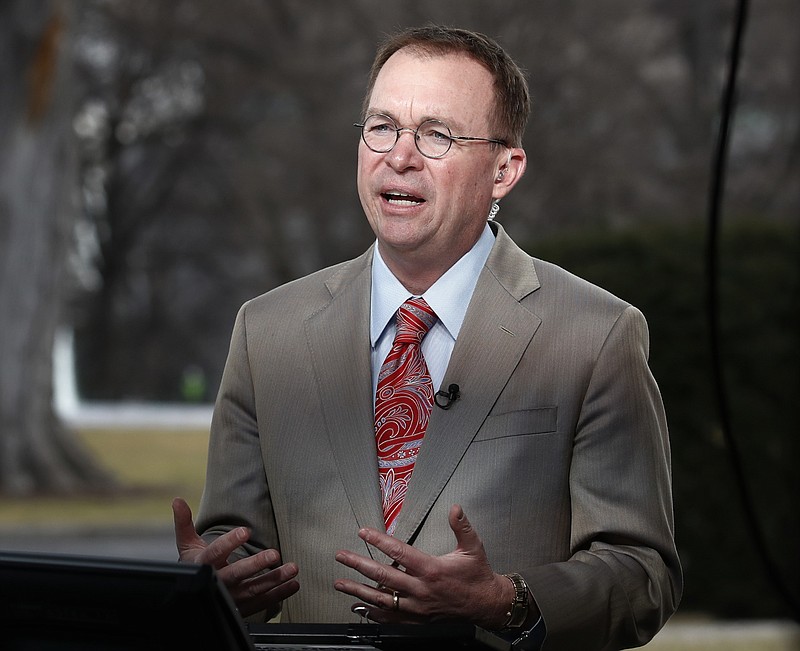WASHINGTON - History is what we make of it - and sometimes we make a real hash. I take as my text for the sermon that follows an op-ed essay in The New York Times this week by Times' columnist David Leonhardt. The headline tells it all: "Democrats, the Real Fiscal Conservatives." Are you kidding?
It is certainly true, as Leonhardt argues, that the Republicans have lost any legitimate claim to be "fiscal conservatives." But the notion that Democrats have replaced them is laughable. The reality is that both Republicans and Democrats are deficit addicts. Democrats have played a central role in this transformation.
Although I don't always agree with him, I respect Leonhardt's journalism. He is a Pulitzer-Prize winner who studied applied mathematics at Yale. But in this case, I think he has reached a partisan conclusion based on meager and selective evidence. If unchallenged, people might accept it as fact.
Here, in a nutshell, is Leonhardt's argument. Since the late 1970s, Democrats have reduced deficits more than Republicans. By contrast, Republicans have ballooned deficits by cutting taxes. For example: The budget deficit declined as a share of Gross Domestic Product under President Bill Clinton and rose as a share of GDP under President George W. Bush.
Yes. But the size of deficits is importantly related to the business cycle - recessions raise deficits, while recoveries lower them - and Republicans have inherited more recessions. The buoyant economy of the 1990s reflected the aftermath of Ronald Reagan's deep recession of the early 1980s, which reduced inflation and interest rates.
The Soviet Union's collapse, which rationalized less military spending, also lowered deficits. Democrats had little to do with that. Even Leonhardt concedes that, up close, the story gets murky. "Some of the most important deficit-reduction packages have been bipartisan," he writes. "The elder George Bush, in particular, deserves credit for his courage to raise taxes. Some of the biggest deficit-ballooning laws, like George W. Bush's Medicare expansion, have also been bipartisan."
All in all, his sweeping hypothesis rests on wobbly pillars. More important are what he omits.
First: Democrats gave us the endless budget deficits that we now confront. Until the 1960s, most Americans supported balanced budgets as an article of faith. A 1962 Gallup Poll found that only 19 percent of respondents favored a tax cut if it would add to the government's debt. Economists in the Kennedy and Johnson administrations destroyed this consensus; they argued that, by manipulating deficits, experts could create "full employment." Kennedy, then Johnson backed this approach.
Once this was tried - and initially succeeded - it was hard to go back. Politicians received an intellectually respectable reason to do what they preferred: spending more and taxing less. Norms changed. Pragmatically, Republicans embraced the new norms. They became eager participants in deficit financing. From 1962 to 1997, the United States had one surplus budget (1969).
Second: It is impossible to come to grips with today's budget deadlock - massive deficits as far as the eye can see - without tackling spending on programs for the older population, led by Social Security and Medicare. (Those two programs alone cost $1.6 trillion in 2017, about 40 percent of all federal spending.)
But Democrats have for decades served as the political protectors of the elderly, refusing to negotiate a new social contract that would better balance the benefits and burdens of an aging society. It is not clear whether Republicans would respond - by accepting higher taxes as their part of the bargain - if Democrats abandoned their intransigence. But if Democrats remain stuck, so will Republicans.
Against that backdrop, it's absurd to classify Democrats as fiscal conservatives. The main point of Leonhardt's exercise is to cast blame for the budget stalemate on the Republicans. That's a partisan conclusion. The reality is that the budget paralysis is a bipartisan failure. As a practical matter, there are few genuine fiscal conservatives, a label that implies a willingness both to cut spending and raise taxes. And that's the truth - really.
Washington Post Writers Group
